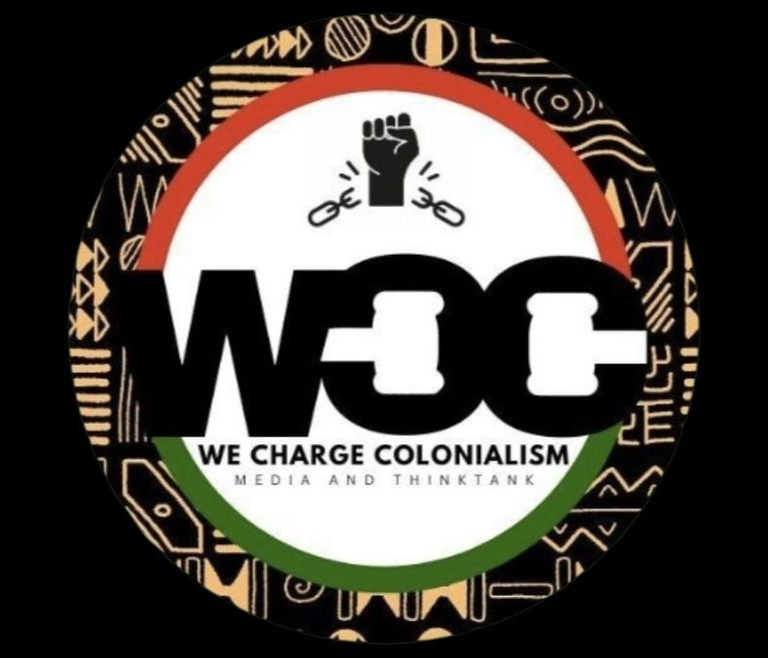Colonialism Intentionally Attacks Our Ability to Transmit Identity Inter-Generationally
Nehemi'EL Ibrihim-Simms
1/30/20255 min read


The picture painted in the previous section is daunting and indicative of serious setbacks in the organizational capacity of Afrikan people in the United States since the Maafa, particularly the end of chattel slavery. Throughout that era, the family-institution was attacked, but given the brute physical force, and the slavocracy-agrarian mode of production, it was able to resist and withstand the onslaught, albeit not without damage. Statistics show that marriage instability in black families didn’t begin to rise until the 1970s. Colonialism, in all its forms, subjugates African people by intentionally targeting the institutions responsible for translating culture from generation to generation. It is in this mistranslation of culture that a group’s axiology is subverted, ultimately causing them to “become” their colonizer and lose the ability to resist domination. Consequently, the crisis ravaging Afrikan families and youth in the inner cities of this country is an intentional interruption; a product of the institutional memory of our colonizers, and necessary for the survival and development of the colonial mode of production, in all its myriad forms.
Colonialism is a relationship where the productive forces of one group of people are dominated by another and used to extract the surplus value. More than economic, colonialism is also a social process whereby the traditions, values and worldview of the dominated group is manipulated and warped to suit the best interests of the dominating group. Thus, colonialism is a process of national oppression. From his lesser known work A Dying Colonialism, Fanon explains the strategy of the French colonial administration in breaking the Arab resistance to their rule. He writes:
“The officials of the French administration in Algeria, committed to destroying the people’s originality, and under instructions to bring about the disintegration, at whatever cost, of forms of existence likely to evoke a national reality directly or indirectly, were to concentrate their efforts on the wearing of the veil, which was looked upon at this juncture as a symbol of the status of the Algerian woman.”
The colonial administration understood the veil of the Algerian woman as symbolic of the cultural values of the Algerian people. Based on the analyses of sociologists and ethnologists, the colonialists understood the Algerian population to have a “structure of matrilineal essence” underneath the “visible, manifest… patrilineal pattern of Algerian society.” Thus, they calculated, the Algerian woman constituted “the pivot of Algerian society.” The Algerian woman represented the integrity of traditional Arab-Algerian society, the pillar of the Algerian family and her veil represented the national identity of the Algerian people as a people separate, in customs and values, from their colonizers.
It is a people’s identity, or their accumulation of learned lessons through the generations displayed symbolically and ritualistically, transmitted through their systems of enculturation, that makes them a distinct group, with a distinct history and personality. These systems serve specific functions in the survival and development, or the self-perpetuation, of the society. Likewise, these systems serve specific functions in a society’s ability to resist colonial domination. The ethos of the colonial mode of production is to first destroy the national identity of the people of the land and then to extract the surplus value of the country.
James Baldwin once summed up the process of colonization in a succinct and colorless quote. He said “ I'm a man. If I'm not the nigger here, and if you invented him, you the white people invented him, then you have to find out why.” The culture of white folks makes them need to dominate everything. Especially the things that scare them. A part of that process is turning the unknown thing into something that is known. In the case of black folks, they sought to turn us into themselves.
The relationship between culture, processes of human development and/or underdevelopment, and the development of a revolutionary national consciousness, within the context of our pursuit of Positive Afrikan Sovereignty, can be effectively analyzed starting with two quotes from leaders within the Black Liberation Tradition. Historian Nana John Henrik Clarke said “powerful people cannot afford to educate the people that they oppress, because once you are truly educated you will not ask for power … you will take it.” Political scientist and leader of the Guinea-Bissau/Cape Verdean anti-colonial guerrilla struggle Nana Amilcar Cabral, in his essay National Liberation and Culture, remarked that the “material aspects of domination” can only be maintained “by the permanent, organized repression of the cultural life of the people involved.” These important movement leaders sought to explain the critical connections between culture, education, and national liberation. To continue their work, we must begin with a critical inquiry: How have our colonizers adapted their tactics to disrupt our specific cultural-political reality?
From a systems analysis, the feedback loop maintaining and reinforcing the institutional and interpersonal violence of our Maafa, our colonial legacy, is its focused capacity on interrupting the ability of Afrikan people to maintain sovereign systems of socialization and train themselves in a distinctly Afrikan custom. This happens through the disruption of key institutions that allow African people to express political and cultural life; chief among them are the family/clan. The clan, a blood-related, extended family exclusively built on matrilineal or patrilineal kinship, is a social organization whose purpose is to meet economic needs and to challenge nature. The family/clan has been the primary institution responsible for the transmission of identity and culture, as well as the organization of the socio-political realm, in both centralized and decentralized contexts. Moreover, needed to substantiate the primacy of this reality is a preliminary understanding of basic Afrikan socio-political philosophy.
The political institutions, the economic institutions, the kinship organization, and the ritual life of African civilization are intimately related and interdependent. Amongst groups without a centralized administrative organization (state), the segmentary lineage system – a social structure that organizes people into lineages based on ancestry with each lineage having a territory – plays the primary role in ordering the political realm. For example, amongst the Bemba of Southern Africa, the local unit is the village. The village is foremost a kinship unit that is created when an elderly man has a sufficient following of relatives to “justify his applying to the chief for permission to set up a community of his own. The core of the village is his own “matrilocal family group” (daughters and their children) and probably members of his “matrilineal descent-group” (sisters and their children).
In the Black Belt of the United States, and the islands of the Caribbean, where the plantation system demanded the utter domination of African people, and subsequently the most thorough dismantling of African culture, the destruction of family as an institution was most prevalent. Nana Frederick Douglass writes in his Narratives that in Maryland it was “common custom” to separate children from their mothers at a very early age. He goes on to speculate that this was done to “hinder the development” of the child and “to blunt and destroy the natural affection of the mother for the child.” Henry Bibb, an American Slave, records in narrative that he too was separated from his mother while he was “young and small.” He also records that “a slave marrying according to the law,” marriage being the bedrock of family development, was “unheard of in the history of American Slavery.”
What’s more, is that anywhere Afrikan people gathered in great numbers, and the enemy failed to make these dilutions, spelled his demise in blood. The evidence of this is in the great history of African resistance in Brazil, Haiti, and Jamaica where the particular systems of enslavement were not about the complete transformation of the colonial subject as it was in the Black Belt region of the United States attributed in part to the lack of numbers. In these areas African people were able to organize based on traditional modes of family and extended family cooperation and form polities like Palmares and Maroon camps that were able to exist as independent polities for a time before being overwhelmed by military might.
